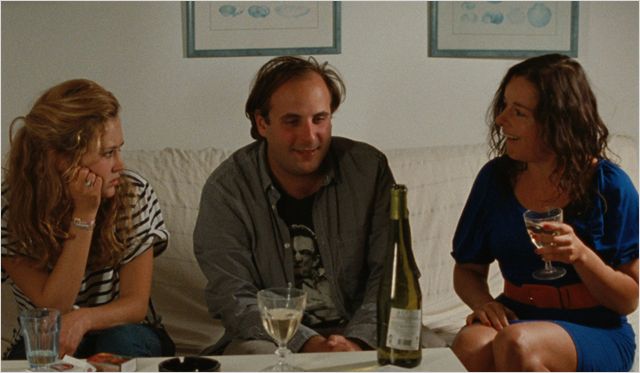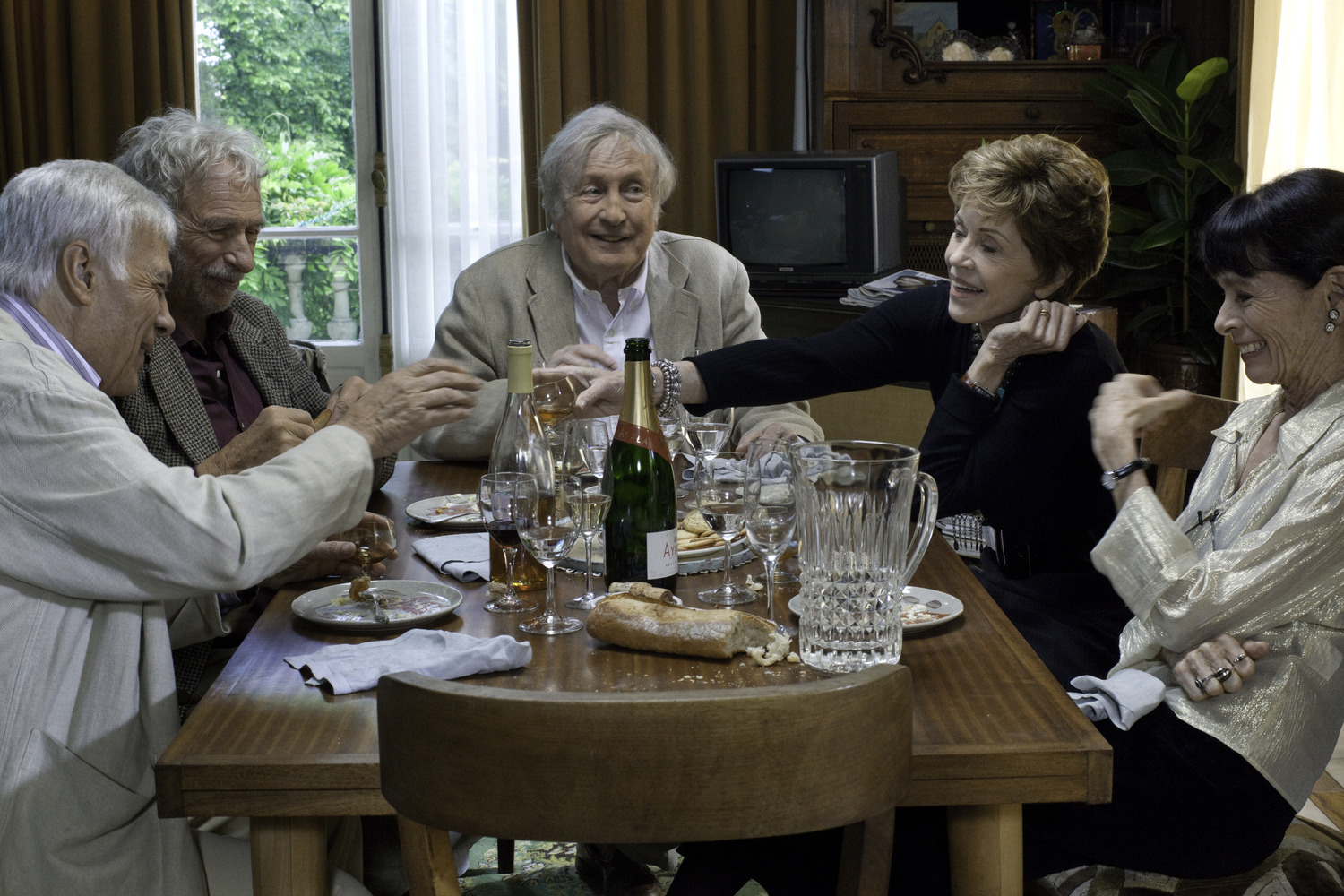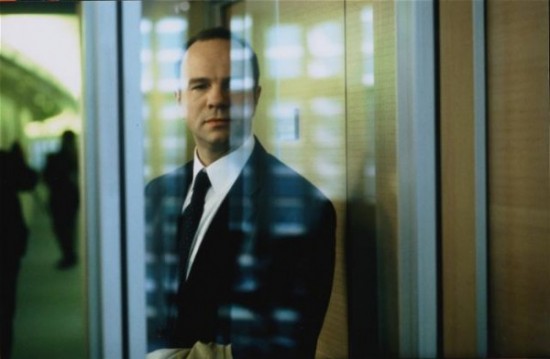Holy Motors is a wild and puzzling art film by the French director Leos Carax. A man named Oscar (the pockmarked Denis Lavant) gets into a white stretch limo driven by a reserved elderly blonde and heads to the first of his “appointments” throughout Paris. He emerges from the limo disguised as a contorted elderly beggar woman and panhandles for a while. For his next appointment, he puts on a motion capture suit and acts out a sci-fi scene that culminates in reptilian space alien sex. We see that the inside of the limo is his dressing room, and later learn that he is acting out scenes to hidden cameras for someone’s viewing pleasure. Each scene is in a different genre – sci-fi, domestic drama, absurdist, crime action and even romantic musical.
It’s up to the audience to connect the dots – and some dots are just not connectable. As confused as we are, however, we keep paying attention to try to figure it all out. Carax’s success here is that he keeps surprising us with stuff that no audience could anticipate. However, if you need a linear and comprehensible story, you will hate this movie.
I don’t think that I would enjoy the film a second time as much without the element of surprise. And some of the episodes work better than others. The motion capture and absurdist segments were riveting, and I loved Oscar leading a head-banging accordion orchestra through the nighttime streets. The deathbed melodrama didn’t work as well for me, and when Kylie Minogue’s character burst into song in the romantic musical, I gagged. I did appreciate the impressive visuals, the loving shots of Paris and the many homages to films of the past.
Spoiler Alert: To give you an idea of how wacked out Holy Motors is, here’s the synopsis of the absurdist episode. Oscar leaves the limo dressed as a filthy and demonic troll, uncovers a man-hole and descends to the sewers under the streets. He pops up in the Pere Lachaise cemetery, where the gravestones are engraved with websites. He rampages through the cemetery, eating the flowers left on the graves. He crashes a fashion shoot and bites off the fingers of the photographer’s assistant. He then licks the armpit of the supermodel (Eva Mendes), smearing it with blood, picks her up and carries her off to his lair in the sewers. There he rips off some of her gown and refashions it into a burqa. Then he sits her (burqa-clad) on a bench, takes off his own clothes and lays next to her with an erection. Wowza.




